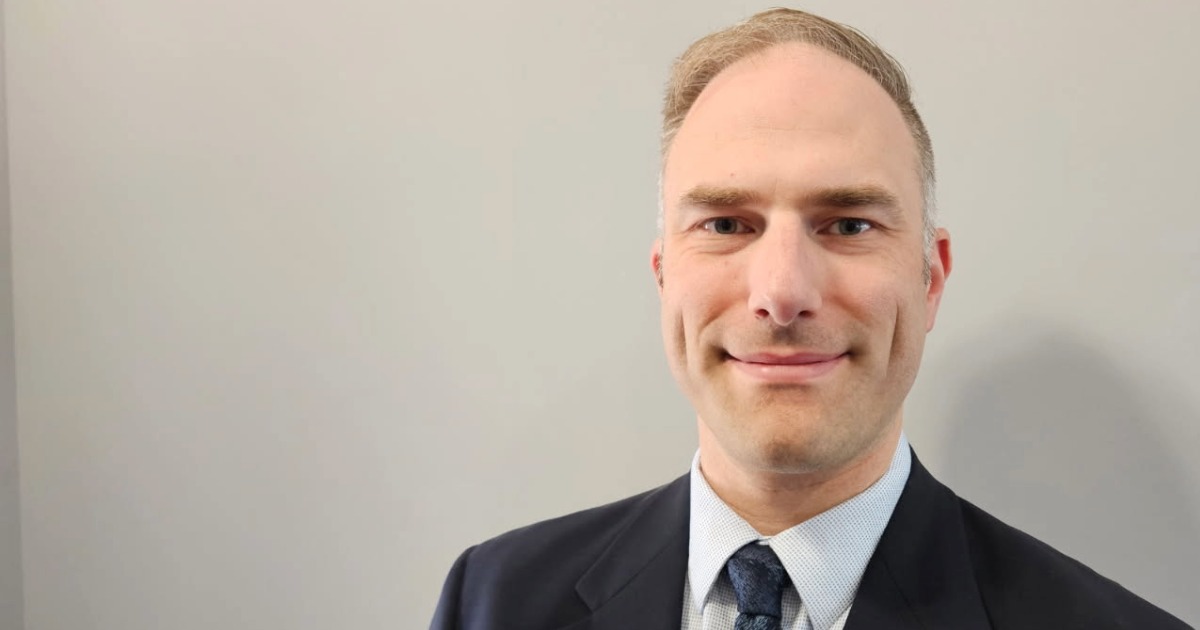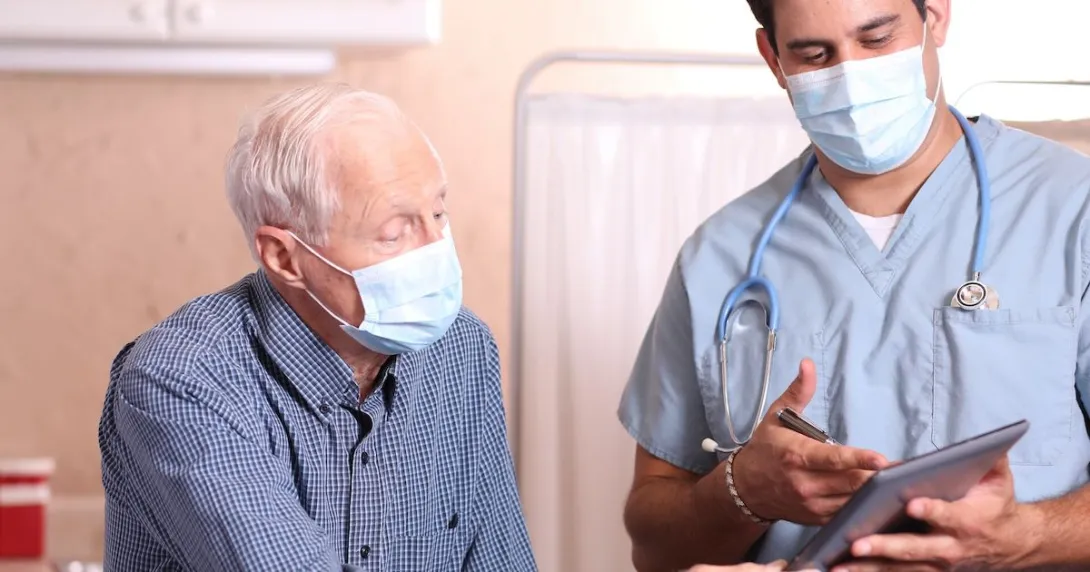
Photo: Hiraman/Getty Images
HealthEx has launched a new patient-directed health data exchange service under the Trusted Exchange Framework and Common Agreement, or TEFCA.
Announced on Tuesday, the new service offers patients access to their medical records across health systems, payers, digital-health apps, artificial intelligence agents and research partners.
In a joint announcement with Epic Systems, HealthEx says patients can now use their own digital health record applications to access and consolidate their Epic health records from multiple providers through the service.
This past month, HealthEx and its partners, which include athenahealth, CLEAR and CommonWell Health Alliance said that they'd achieved patient authentication under TEFCA to enable consumer‑directed data exchange.
Now, working with Epic, HealthEx is expanding the scope of its offerings.
"TEFCA helps us to connect with almost 1,500 hospitals and 34,000 clinics using Epic through one common agreement," said Dr. Priyanka Agarwal, CEO of HealthEx.
"Patients everywhere will be able to easily move data to the app of their choosing, while maintaining privacy and security," added Rob Klootwyk, Epic's director of interoperability, in a statement.
MedAllies serves as the Qualified Health Information Network enabling HealthEx’s connectivity.
Patients using the company's individual access service can immediately connect to organizations that are live on TEFCA – and since most of Epic's providers have already onboarded to TEFCA, they can immediately exchange data.
"We're now supporting individual access from Epic-based providers, which is obviously a huge milestone given Epic's footprint in this space," Agarwal told Healthcare IT News on Monday on a call ahead of the announcement.
"This is a great opportunity for an organization who's bringing an app that's patient-facing to be connected to tens of thousands of clinics and thousands of hospitals all across the country and make it easy for patients to access their own data," added Matt Doyle, Epic's head of research and development.
Agarwal and Doyle said the companies have been testing data sharing over the last several weeks, but Doyle pointed out that the underlying technology was already built.
"What's wonderful is this is an example where no new technology was needed," he said. "The technological pieces or widgets that are needed to connect data have been available for years."
Establishing patient-centric health technology has been within reach, but has been slow to actualize.
Agarwal and others credited a renewed pledge from the federal government for incentivising it. Others in the industry have said conversationally that 'TEFCA now has teeth.'
Consent-driven infrastructure
Once a patient verifies their identity – using CLEAR's technology – they'll grant HealthEx consent and authorization to go to QHINs and other national networks under TEFCA and get their records.
HealthEx then provides the patient with a combined, single medical record file.
The service is composed of a computable consent infrastructure and an artificial intelligence-driven data policy engine. The company said all patient choices are enforced under its IAS designation, so they remain secure, auditable and revocable.
Consent allows any IAS provider to connect with Epic providers, fostering competition and innovation, Doyle added.
"Using TEFCA with IAS, patients will have a single on-ramp," he said. "That infrastructure will find all of the doctors and hospitals where a patient has received care through record locator services, and will then retrieve all of that patient's health data in industry standard formats."
While patients can hop between multiple MyChart accounts through a feature Epic calls Happy Together, exporting a consolidated medical record across providers is what patients want.
"Ultimately, some patients are going to say, in addition to using MyChart, I want to have an app where I'm going to access and download all my own health data," said Doyle.
That's where HealthEx comes in, said Agarwal.
It's "an end-to-end experience that makes it really simple and seamless for individuals that want to access their records from multiple points of care," he explained.
Now patients can "easily move data to the app of their choosing, while maintaining privacy and security," said Klootwyk. "We’re excited to see HealthEx lead by making IAS a reality on TEFCA."
Later, if a patient wants to update the personal health record they created, they use HealthEx services again.
"Right now, the way that the service works is that when a patient wants to update their records, they put in an additional request," Agarwal said.
In the future, HealthEx may be able to allow patients to grant ongoing access to their records available through TEFCA to keep their copy of their medical records updated.
Doyle noted that patients can also authorize healthcare providers to send data through automatic request updates in their preferences.
While patient access right now is limited to HealthEx partners, any patient will be able to go directly through a HealthEx app early next year, Agarwal said.
Data exchange through APIs
IAS became available under the second version of the Common Agreement, or TEFCA 2.0, this past year, so HealthEx and Epic do not need to enter into a specific data exchange agreement, Agarwal explained.
More recently, the U.S. Centers for Medicare & Medicaid Services Health Technology Ecosystem pledge kicked off with 60 tech companies, 21 health data exchange networks, 11 providers and five payers agreeing to voluntary data exchange criteria.
HealthEx and Epic were early signers and they are among the first providing patient-directed data exchange through IAS – where APIs are at the root of its functionality.
"That common framework and the rules that we both agree to allow us to then exchange information, records and consents without additional partnership or agreement," Agarwal said. "So, that's actually made this work much simpler than it was in the past."
"We're all working together for CMS's goals, we want to see patient access and we want to make it easier for individuals to have access to their records."
While HealthEx didn't have to create an explicit contract with Epic, "It's even more sophisticated than that," Doyle said. "They don't have to go out to every single clinic and hospital across America; now data can flow back and forth in an automated fashion."
"It's essentially a similar state across the major EHR providers nationwide," Agarwal noted, crediting the federal agency for the momentum.
"CMS's announcement is so powerful," she said. In a patient-centric healthcare ecosystem, "individuals are using their health records to guide their decisions, improve outcomes."
"It’s exciting to see early adopters of the CMS Health Tech Ecosystem pledge like HealthEx and Epic take this incremental step together toward achieving our Interoperability Framework,"Amy Gleason, strategic advisor to the U.S. Department of Health and Human Services and CMS and acting administrator of the U.S. DOGE Service, told Healthcare IT News Monday by email.
"Our hope is that by working with Epic and making our service through HealthEx available, it's ultimately going to just create more ease for patients as they're going through their own care journey," said Agarwal. "We want to enter into a world where there's less paperwork, more individual control. We don't want this to feel like a burden for individuals, which oftentimes today it can."
In June, Doyle had said Epic was on track to onboard its remaining customers to TEFCA when it reached a milestone with its own health information network, called Epic Nexus.
The EHR giant had more than 1,000 hospitals and 22,000 clinics exchanging patient data through its QHIN and said that in the previous year, its provider customers had closed 316 million care gaps through Carequality, TEFCA and other exchange methods. Epic said the number of care gaps closed has now risen to 394 million.
The company said an increase in app-driven data exchange through IAS had been expected.
"About half of the Epic community is already live on TEFCA, 35% more are implementing right now, so that leaves a little bit on the tail end that we're working with," Doyle said Monday. "This is a great opportunity for technology platforms to come together and say, we can really help folks get their own health data so that they can see what's in there and they can make informed decisions."
Andrea Fox is senior editor of Healthcare IT News.
Email: afox@himss.org
Healthcare IT News is a HIMSS Media publication.


